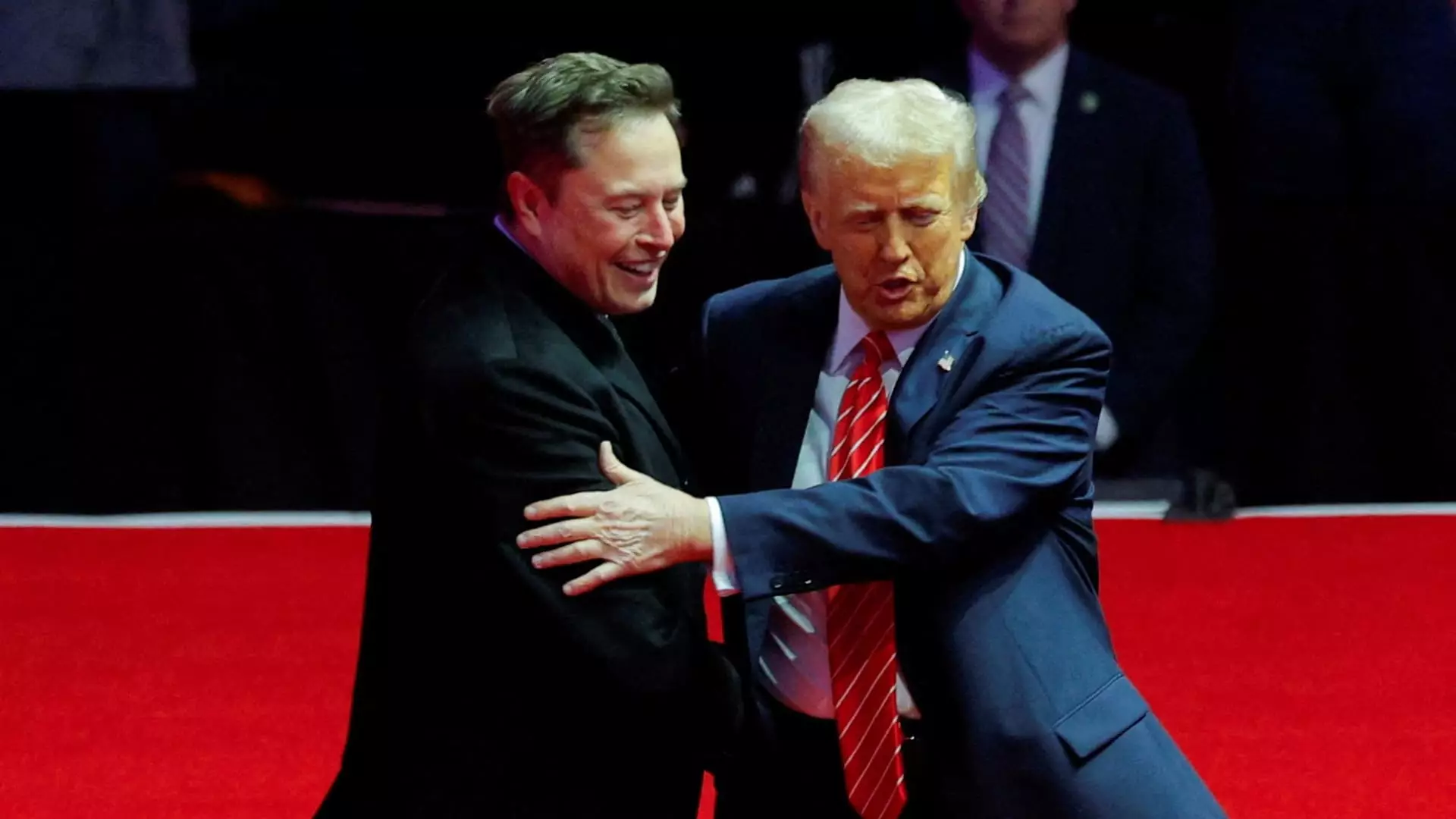As Tesla navigates the complex waters of the electric vehicle industry, it finds itself at an unprecedented intersection of commerce and politics. The announcement of Tesla’s fourth-quarter earnings comes shortly after President Donald Trump’s inauguration for a second term, during which CEO Elon Musk has assumed a high-profile role in Trump’s administration. This dual engagement raises fundamental questions among Tesla shareholders regarding their leader’s focus and priorities. Investors expressed growing concerns about Musk’s commitment to Tesla amidst a backdrop of political maneuvering and controversial gestures.
In the days leading up to the earnings report, an avalanche of inquiries poured into Tesla’s investor forum, reflecting a palpable unease among shareholders. Over 100 questions were submitted surrounding Musk’s political involvement, particularly his roles within the Department of Government Efficiency (DOGE) and his support for far-right political candidates. Questions such as how Musk balances his time between advancing Tesla’s technological innovations and engaging in political activities illustrate a significant worry: whether his political engagements detract from the leadership and concentration required to navigate Tesla’s current challenges.
Shareholders were particularly concerned regarding Musk’s substantial political contributions, including $270 million directed toward Trump and other Republican candidates during a critical election cycle. This profound financial backing not only emphasizes Musk’s political ambitions but also raises alarm bells among investors who question his commitment to the company whose brand value took a hit in the previous year.
Recent data from Brand Finance bolsters shareholders’ concerns, revealing a 26% decrease in Tesla’s brand value over the past year. Factors such as Musk’s polarizing public persona, an aging lineup of electric vehicles, and diminishing consumer endorsements contribute to this decline. It’s pivotal to analyze whether Musk’s escalating political entanglements and controversy-laden statements impact consumer perception and sales. A prevailing sentiment among investors is the direct link between Musk’s public engagements and Tesla’s struggling market image, leading to inquiries about tangible repercussions stemming from his political rhetoric.
Investors were particularly troubled by Musk’s recent public behavior, including a gesture perceived by many as a Nazi salute, which further fueled divisive interpretations of his character. Such actions not only alienated a segment of consumers but also had the potential to instigate a backlash against Tesla. This controversy underscores the critical intersection of a leader’s personal brand and the corporate identity of the organization they represent.
Amidst the rapidly brewing controversy, the sentiment among shareholders beckoned for a response. Queries centered around whether Tesla would address the fallout from Musk’s provocative behaviors, particularly in relation to his political endorsements and public conduct. Many sought clarity on whether these actions have negatively affected sales or damaged Tesla’s reputation irreparably. An investor’s pointed question regarding an apology highlighted the urgency for accountability and the need for leadership that aligns corporate values with consumer expectations.
Musk’s dismissive response to critiques fueled further outrage, fostering skepticism about his self-awareness concerning the ramifications of his statements and actions. The disconnect between Musk’s individual pursuits and the expectations of Tesla’s investors illuminated a rift that could potentially jeopardize the company’s future stability.
As Tesla prepares to unveil its fourth-quarter results, the company stands at a crossroads. The overlap between Musk’s political engagements and his responsibilities as CEO raises significant questions about the direction of the company amid political and social turbulence. For investors, the essential inquiry remains whether Musk can effectively compartmentalize his political commitments to ensure Tesla’s growth trajectory isn’t adversely affected. Moving forward, both Musk and Tesla’s leadership must reconcile their public personas with investor expectations to maintain shareholder confidence and drive sustainable growth. The path forward demands sharp focus, clear communication, and a commitment to upholding a brand that resonates positively with the public, rather than getting mired in political controversy.

